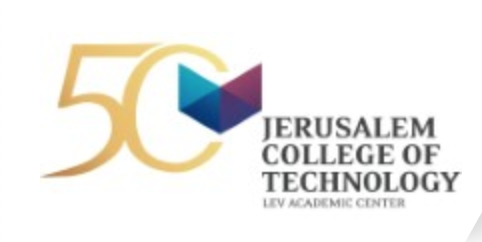Can Torah study and an academic degree fit within the same schedule? It’s the question asked by numerous yeshiva students worldwide who wish to simultaneously pursue a professional career, but struggle to envision how the pieces will fit together.
The Jerusalem College of Technology’s (JCT) International Program in English is a unique program which solves this conundrum, offering students the opportunity to live in Israel and study Torah in a religiously sensitive environment, while pursuing a degree in Computer Science or Business Administration.
In the following interview, JCT Vice President Stuart Hershkowitz speaks with Yeshiva World News about the history and impact of the International Program. Hershkowitz has also long worked on the frontlines of the issue of Haredi employment and integration in Israel, a central component of JCT’s mission.
Q: Can you explain how and why JCT’s International Program got started?
A: “The program was created many years ago, but it functioned more like a gap-year program. Then, seven years ago, we decided to invest more resources into the program and make it a full academic degree. It was crucial for us to have an immersive program, and not simply to have students coming for a year and returning to their home countries. We started with a business degree and four years ago we added computers. Finally, in 2019, our International Program launched Israel’s first computer science degree in English that is offered exclusively for women.”
Q: How does the International Program help its students strike a balance between Torah studies and secular academics?
A: “The Torah-academic balance has been the primary strand of the college’s DNA for the last 50 years. Our students study Judaic Studies in the morning and secular academics in the afternoon. Our institution is geared toward students who want to do that, and especially those who are seeking to incorporate both technology and Torah studies into their daily lives. “The International Program is just one manifestation of our dual mission at the intersection of Torah and technology. We have long taken pride in the fact that JCT’s Haredi graduates attain an 89-percent employment rate, far exceeding the roughly 50-percent employment rate for Haredi men throughout Israel, with many of them embarking on ambitious career paths in science and technology. The college has produced a number of alumni who have become leaders in Israel’s defense industry and are involved in top-tier defense projects like the Iron Dome and Arrow anti-missile systems, as well as the country’s space program and satellite development efforts. “Religious students, whether they come from Israel and overseas, have abundant skills and ingenuity to contribute to science and technology fields. This community is a largely untapped resource. At the same time, they should not need to sacrifice on Torah study while they pursue education and professional training in those disciplines, and that is one of the most important reasons why JCT exists.”
Q: How does JCT create a religiously sensitive classroom and campus environment for international students, and what does that environment look like?
A: “Our Beit Midrash, which is available to both international and domestic students, is really the center of the college’s religious life. The Beit Midrash curriculum includes Tanach, Talmud, Jewish law, Jewish philosophy, business ethics, and the synthesis of Torah and technology; this provides students with the strong foundation necessary to cultivate an enduring commitment to Jewish values and integrate it into every aspect of their lives. “JCT’s full-time Beit Midrash Program includes approximately 20 hours of Torah learning per week. Despite the demanding hours of a double curriculum, our students are highly motivated to learn Torah and strengthen their connection to the land of Israel. “Perhaps most importantly, our campus is truly a religious-friendly environment — and gender separate. Most of the faculty is religiously observant and all of the students are observant.”
Q: What proportion of JCT’s international students eventually make Aliyah after graduation? For those who remain in Israel, how does the college set them up for success?
A: “A vast majority of our international students make Aliyah and stay in Israel. Our program is different than a gap year. It is a full college degree, often for students who have already made a decision that they want to be in Israel. We have an active job placement department for our students. And with a shortage of 15,000 computer engineers in Israel, our students are usually recruited and sought-after by employers before they even graduate. English-language competency is also a very significant leg up in Israel’s job market, almost in high-tech or business. For these reasons, we don’t see our international students having difficulty finding jobs upon graduation.”











